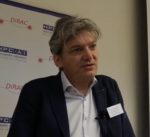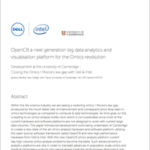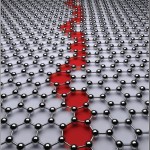To control compute – to squeeze or open the spigot of processing power – is to control AI. In doing so, AI can be steered toward beneficial results while avoiding, or punishing, bad ones. That’s the argument forwarded in a white paper from 15 research centers and universities in the U.S., Canada and the UK – and OpenAI….
Video: The Cambridge Research Computing Service
Paul Calleja from the University of Cambridge gave this talk at the UK HPC Conference. “With unprecedented access to increasing volumes of data, our research ranges from the underlying fundamentals in mathematics and computer science, to data science applications across all six University Schools of Arts and Humanities, Biological Sciences, Clinical Medicine, Humanities and Social Sciences, Physical Sciences, and Technology.”
Design Work Completed for SKA Telescope Supercomputer
An international group of scientists led by the University of Cambridge has finished designing the ‘brain’ of the Square Kilometre Array (SKA), the world’s largest radio telescope. When complete, the SKA will enable astronomers to monitor the sky in unprecedented detail and survey the entire sky much faster than any system currently in existence. “We estimate SDP’s total compute power to be around 250 PFlops – that’s 25% faster than IBM’s Summit, the current fastest supercomputer in the world.”
Dr Debora Sijacki wins 2019 PRACE Ada Lovelace Award for HPC
Today the European PRACE initiative announced that Dr Debora Sijacki from the University of Cambridge will receive the 2019 PRACE Ada Lovelace Award for HPC for her outstanding contributions to and impact on high performance computing in Europe. As a computational cosmologist she has achieved numerous high-impact results in astrophysics based on numerical simulations on state-of-the-art supercomputers.
OpenCB a Next Generation for Big Data Analytics
This paper introduced development work being undertaken at Cambridge to create a new state of the art omics analysis hardware and software platform utilizing the open source software framework called OpenCB
Designing Interfaces in Materials with Supercomputers
Designing materials atom-by-atom has long been a science fiction dream. Georg Schusteritsch and Chris Pickard of the University of Cambridge are bringing science fiction one step closer to reality using the UK National Supercomputing Facility, ARCHER to reveal the interfaces forming within and between materials. “We have developed a general first-principles approach to predict the crystal structure of interfaces in materials, a technique that represents a major step towards computationally developing materials with specially designed interfaces.”
Mellanox Powers OpenStack Cloud at University of Cambridge
Today Mellanox announced that University of Cambridge has selected Mellanox End-to-End Ethernet interconnect solution including Spectrum SN2700 Ethernet switches, ConnectX-4 Lx NICs and LinkX cables for its OpenStack-based scientific research cloud. This new win has expanded Mellanox’s existing footprint of InfiniBand solution and empowers the UoC to realize its vision of HPC and Cloud convergence through high-speed cloud networks at 25/50/100Gb/s throughput.










